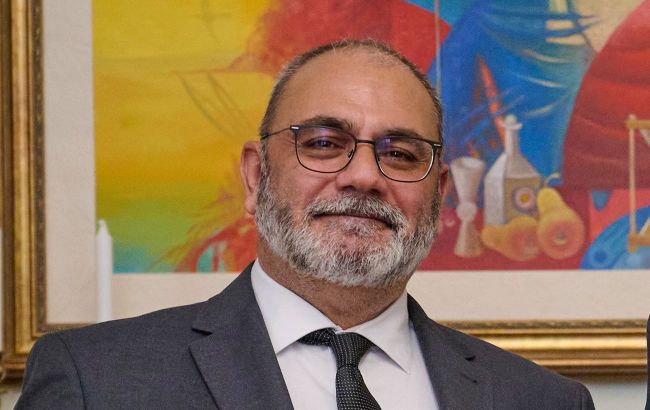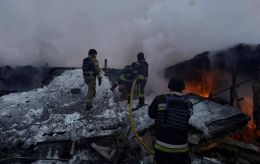Cyprus’ stance on freezing Russian assets - Ambassador explains
 Photo: Ambassador of Cyprus to Ukraine, Michalis Firillas (mf.gov.ua)
Photo: Ambassador of Cyprus to Ukraine, Michalis Firillas (mf.gov.ua)
Cyprus will not make independent decisions regarding the freezing of Russian assets and will act within the framework of the EU consensus. Such a decision requires the unanimous agreement of all member states, Ambassador of Cyprus to Ukraine, Michalis Firillas, says in a comment to RBC-Ukraine.
“Regarding the freezing of Russian assets, Cyprus will not act independently but will follow the EU consensus. Any decision to freeze assets will require unanimous EU agreement, which is complicated. Some EU member states have allocated limited funds for defense, but this often requires decisions at the national level and changes in banking legislation,” Firillas explained.
According to the Ambassador of Cyprus to Ukraine, larger EU countries hold significantly more Russian assets than Cyprus.
“Cyprus makes headlines because it is easier to point to as a target, but the majority of Russian money is elsewhere,” Firillas noted.
Firilas also emphasized that the volume of Russian money in Cyprus has decreased significantly. In his view, this is due to two factors.
“The President of Russia demanded the return of funds, and part of the money moved to Türkiye. In addition, Cyprus strengthened anti-money laundering measures, cooperating closely with the US, including through the FBI office in Cyprus, and with the EU. Although the problem has not disappeared completely, the Russian financial presence in Cyprus has been significantly reduced, and Cyprus supports the EU’s position on Ukraine,” the Ambassador of Cyprus to Ukraine explained.
Freezing of Russian assets
Since the start of Russia’s full-scale invasion of Ukraine, Western countries have begun blocking Russian assets. Ukrainian officials hope that these funds will eventually be transferred to Ukraine.
Earlier, the media reported that the European Commission is developing a mechanism to transfer nearly €200 billion in frozen Russian assets to Ukraine’s post-war reconstruction.
Currently, Brussels is assessing the readiness of national governments to place these funds in higher-risk investments that could generate additional revenue for Ukraine and increase pressure on Russia.
Proponents of this approach view it as a step toward the possible confiscation of assets and their transfer to Ukraine as punishment for Moscow’s refusal to pay compensation after the war.
Earlier, French President Emmanuel Macron stated that the European Union cannot confiscate frozen Russian assets due to the lack of a legal basis.

